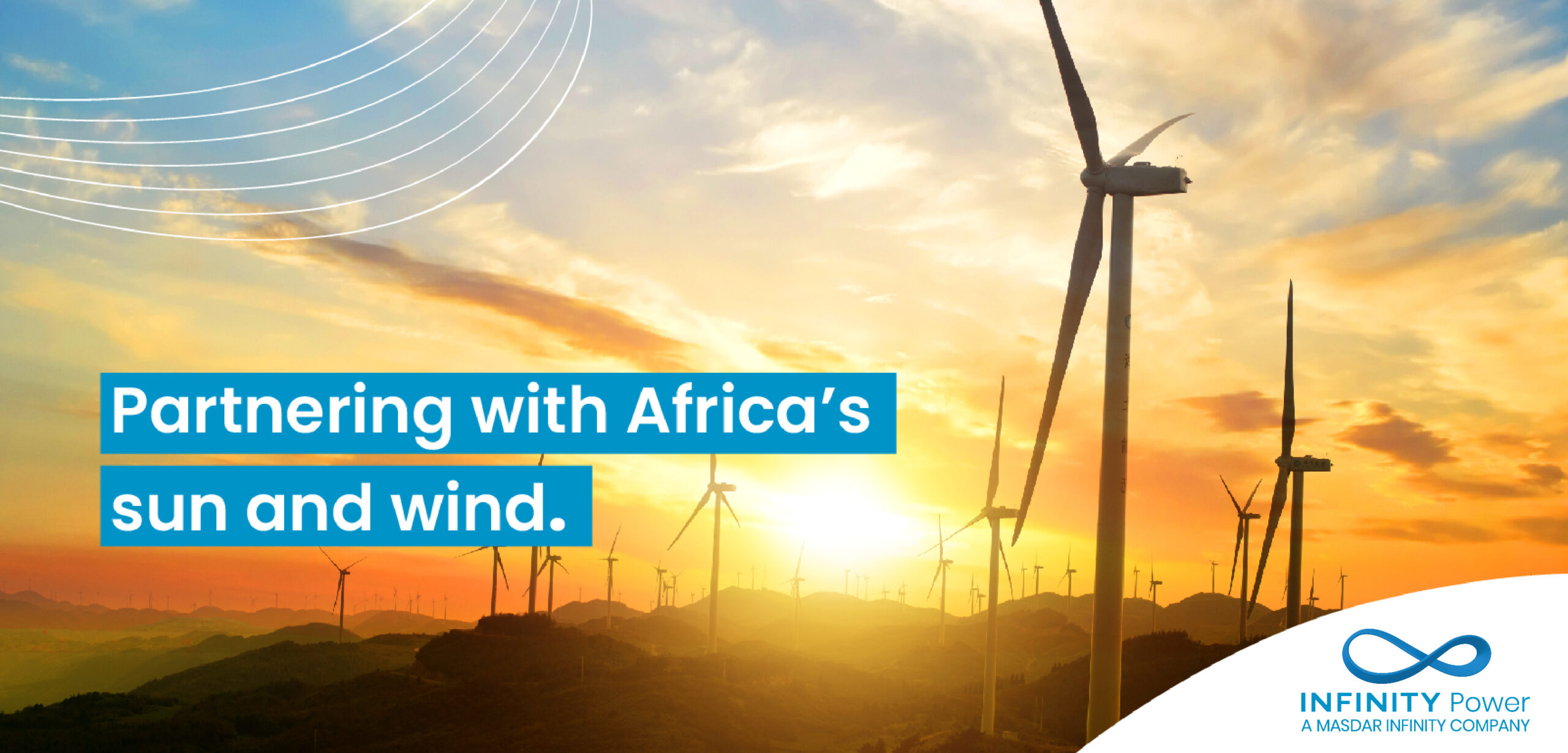- Saudi Power Procurement Company issues RFQs for 3.7 GW solar projects. (Solar)
- Taqa partners with Romanian companies to explore the feasibility of a HVDC project. (Renewables)
- Masdar inaugurates 145 MW floating solar plant in Indonesia. (Solar)
- ADIB raises USD 500 mn in blockbuster green sukuk debut. (Debt Watch)
- UAE launches its Strategy for Climate Neutrality 2050 ahead of COP28. (Climate Policy)
- Dewa reports a 6.9% y-o-y increase in net profits in 3Q 2023. (Earnings Watch)
- Japan and South Korea eye hydrogen supply chain investments in MENA. (What We’re Tracking Today)
- Can a millimeter thick artificial leaf be used to make green fuels? (Climate in the News)

Monday, 13 November 2023
Saudi Power Procurement Company issues RFQs for 3.7 GW solar projects
TL;DR
WHAT WE’RE TRACKING TODAY

Good morning, lovely people. It’s a busy Monday morning in our neck of the woods with lots of industry updates from across the region and beyond. Shall we?
THE BIG CLIMATE STORIES- Saudi Arabia’s state-owned Saudi Power Procurement Company issued requests for qualifications for four planned solar energy projects with a combined 3.7 GW production capacity as part of the fifth round of projects under KSA’s National Renewable Energy Program and The Abu Dhabi National Energy Company (Taqa) has inked an agreement with the Romanian Power Grid Company Transelectrica, Meridiam, E-INFRA, and Fluor to carry out a feasibility study for a HVDC infrastructure project in Romania.
^^ We have the details on these stories and more in the news well, below.
THE BIG CLIMATE STORY OUTSIDE THE REGION- ‘Once in a century’ flooding batters Somalia: The combined impact of the El Niño and the Indian Ocean Dipole climate phenomenons have led to severe seasonal flooding in Somalia, killing at least 31 people as of yesterday and displacing some 500k people in the country. The United Nations says the ‘once in a century’ downpours could potentially uproot as much as 1.6 mn people and has disbursed USD 25 mn in aid to alleviate the crisis, which it says could destroy as much as 1.5 mn hectares of farming land. The flooding has already disrupted the lives of some 1.2 mn people in the country.
The story made headlines in the international press over the weekend: Reuters | BBC | Washington Post | France 24 | CNBC
HAT TIP- "The UAE is leading COP by example," Irena director-general says: The UAE is leading the way in the energy transition by eliminating oil subsidies and meeting its domestic target of tripling renewable energy, director-general of the International Renewable Energy Agency (Irena) Francesco La Camera said in an interview with Khaleej Times on Friday. The UAE’s efforts will set the stage for achieving COP28's objective of tripling renewable energy by 2030, the news outlet said. La Camera said that the renewables investment approach adopted by the UAE — which has invested in over 70 countries — should be mirrored globally.
17% of Dubai’s electricity generated in 3Q came from renewables: Dubai’s total installed power capacity reached 15.1 GW in 3Q 2023, of which 17.2% (or 2.6 GW) came from renewable energy sources, Dewa said in its 3Q earnings statement, according to the Government of Dubai Media Office.
OVER IN COPLAND- EU intends to pressure UAE to pay up for loss and damage: The EU is planning to push the UAE to contribute financially to the loss and damage fund, which adds the COP28 host to a group of heavy emitters — including China and Saudi Arabia — that are receiving pressure from developed countries to pay up for their emissions, Bloomberg reported on Friday. Western countries have been reluctant to agree to a loss and damage text that requires only developed countries put money into the fund, calling for the fund to receive capital from a broad range of sources instead. China and Saudi Arabia have rejected the push, arguing that the countries responsible for the bulk of historical emissions should be the ones to shoulder the responsibility for loss and damage, the news outlet said.
Can the climate fight bring the US and China together? The US and China said they have reached “understandings and agreements” on points of contention with regards to the climate fight, Reuters reported on Friday, citing comments made by US Climate Envoy John Kerry. Kerry’s comments came after four days of meetings with China’s Climate Envoy Xie Zhenhua to ensure progress is made at COP28. Details of the agreements between the two will be disclosed soon, Kerry added.
AND- COP28’s net-zero charter gets its first bank signatory: The UAE’s First Abu Dhabi Bank (FAB) has become the first bank globally to join the COP28 Net-Zero Transition Charter launched last week, Wam reported on Friday. By joining the charter, the bank has agreed to set 1.5°C aligned net-zero 2050 and interim emission reduction targets, committing to an officially recognized (national or international) net zero pledge, establishing a net zero transition plan within one year of COP28, and publicly reporting annual emissions and progress. The charter aims to mobilize the private sector to commit to a 2050 transition plan, which is already defined in the bank's sustainability strategy. The bank also aims to allocate USD 75 bn for sustainable financing by 2030.
OTHER COP28 UPDATES WORTH KNOWING ABOUT THIS MORNING-
- The COP28 Presidency is planning to launch the Declaration on Climate, Relief, Recovery and Peace on 3 December. WFP’s Executive Director Cindy McCain and COP28 president designate Sultan Al Jaber called for urgent action to increase climate action in fragile and conflict-affected areas where “extreme weather events affect three times as many people annually compared to other countries.” (Statement)
- The COP28 Presidency launched a coalition to strengthen the global climate tech ecosystem. The Innovate for Climate Tech coalition — established in partnership with Abu Dhabi’s Masdar City, Chinese internet giant Tencent, and Masdar City-BP greentech JV Catalyst — will support initiatives working on climate technologies to further accelerate their rollout. Other coalition activities will include setting up a knowledge database, introducing members to global climate tech programs, and launching a digital climate tech platform that will connect startups, venture capitalists, corporations and governments together. (Statement)
- EU agrees to new rules to restore and preserve degraded habitats: The EU Parliament and Council have agreed to put in place measures to restore at least 20% of the EU’s land and sea areas by 2030, at least 60% of habitats in poor condition by 2040 and 90% by 2050. This “sends an important positive signal to our global partners ahead of COP28,” the commissioner overseeing the bloc's Green Deal plans Maros Sefcovic told the National. (Statement)
WATCH THIS SPACE #1- The UN enters a new round of talks to end plastic pollution: Heads of state are gathering in Nairobi today for a weeklong summit ending next Sunday in a bid to reach a globally binding treaty aimed at tackling plastic pollution, Reuters reports. UN delegates will work on a “zero draft” document to determine whether to limit single-use plastic production or contain pollution through waste management efforts, exploring pathways to finalize a global pact on plastic waste by the end of 2024.
Who’s lobbying for what: Countries including Japan, Canada and Kenya are lobbying for a treaty with “binding provisions” on the phaseout of virgin plastic polymers derived from petrochemicals, and other toxic plastics including polyvinyl chloride materials (PVCs). On the other side of the aisle, major oil producing countries like Saudi Arabia are calling for the reuse and recycling of plastics rather than outright production ban, saying the root of the plastic pollution crisis is “inefficient management of waste.”
REMEMBER- The global output of plastic production currently totals some 400 mn tons annually, with 10% of the volume being recycled, exacerbating oceanic plastic pollution and overwhelming landfill capacity. Heads of state had gathered in Paris back in May to hammer out a global treaty that would bring an end to plastic pollution. That same month, the United Nations Environment Programme laid out a strategy aimed at reducing the world’s plastic waste levels by nearly 80% in less than two decades using pre-existing technologies.
WATCH THIS SPACE #2- Japan and South Korea eye hydrogen supply chain investments in MENA: Japan and South Korea are reportedly planning to launch a cooperation program to establish a clean hydrogen supply chain beyond their domestic markets with both MENA and US as potential targets for investments, Nikkei reported on Friday, citing people with knowledge of the matter. Both countries will leverage government-sponsored financial institutions’ fundraising capacity to develop a sea-based hydrogen corridor by 2030 to source local demands for green fuels, with the Japan Bank for International Cooperation serving as the main capital facilitator for Japan, Nikkei writes. Japan and Korea plan to award subsidies to kickstart the clean fuels market at the end of 2024 and will begin awarding contracts by 2025, with deals expected to begin in 2027.
South Korea already has MENA’s green fuels in play: South Korea’s GS Energy Corporation and Japan’s Mitsui & Co signed a shareholder agreement with Ta’ziz — a joint venture between Adnoc and ADQ — to develop low-carbon ammonia factory in the UAE with an annual capacity of around 1 mn tons back in January. South Korea’s President Yoon Suk Yeol and KSA Crown Prince Mohammed bin Salman activated their joint “Hydrogen Oasis” cooperation initiative last month after Saudi Arabia’s Public Investment Fund signed a USD 6.5 bn agreement in November with Korea Electric Power Corp (Kepco) and four other South Korean firms to build a hydrogen and ammonia production plant in KSA.
WATCH THIS SPACE #3- Occidental says its DAC tech could bring online 1k carbon capture projects: US-based gas and oil supplier Occidental Petroleum intends to sell direct air capture (DAC) technology licenses to allow clients to build plants with tech that can absorb carbon out of the air, Reuters reported last week, citing comments made by CEO Vicki Hollub. The company plans on charging a licensing fee under a franchising structure that would hand over construction and management to partners, Hollub said. The company estimates it will shell out around USD 600 mn annually through 2026 to build up to 100 facilities in the long term. Last week, BlackRock said it would invest USD 550 mn in developing Occidental's DAC Stratos plant in Texas.
Occidental has its eyes on MENA: The company’s Omani subsidiary Oxy Oman signed an agreement last week with state-owned OQ Gas Networks to conduct studies for establishing carbon capture, usage, and storage (CCUS) projects in the sultanate. Back in August, the company signed an agreement with Adnoc in August to assess the feasibility of establishing what they said could be the first megaton DAC project outside of the US with a 1 mn ton annual carbon sequestration capacity.
|
***
YOU’RE READING ENTERPRISE CLIMATE, the essential MENA publication for senior execs who care about the world’s most important industry. We’re out Monday through Thursday by 5am Cairo / 5am Riyadh / 6am UAE.
EXPLORE MORE OF ENTERPRISE ON THE WEB — tap or click here to read EnterpriseAM, EnterprisePM, and The Weekend Edition on our powerful new website packed with reader-friendly features.
Were you forwarded this email? Get your own subscription without charge here or reach out to us on climate@enterprisemea.com with comments, suggestions and story tips.
***
CIRCLE YOUR CALENDAR-
The UAE will host the MENA Solar Conference from Wednesday, 15 November to Saturday, 18 November in Dubai. The event will focus on all things photovoltaic, with a full programme on PV materials and devices, future technologies, PV reliability, and forecasting for performance assessment. The conference will also touch on how developments in system operations, concentrated solar power, and grid integration are necessary for the green transition. This will be the first scientific and technical conference specializing in solar energy systems in the region.
The UAE will host the Aviation and Alternative Fuels conference from Monday, 20 November to Friday, 24 November in Dubai. The event will bring together senior government officials and international organizations to assess progress in the development and deployment of sustainable aviation fuels (SAFs) and lower-carbon aviation fuel (LCAF) measured according to the targets outlined in the 2050 Vision for SAF, agreed upon at the last Aviation and Alternative Fuels conference in 2017.
The UAE will host the Abu Dhabi Finance Week (ADFW) from Monday, 27 November to Thursday, 30 November in Abu Dhabi. The event will gather government officials, banks, financial institutions, and VCs to delve into today’s economic, technological, and sustainability conversations.
Check out our full calendar on the web for a comprehensive listing of upcoming news events, national holidays and news triggers.
SOLAR
Saudi Power Procurement Company issues RFQs for 3.7 GW solar projects

KSA’s SPPC issues RFQs for 3.7 GW solar projects: State-owned Saudi Power Procurement Company (SPPC) issued requests for qualifications (RFQs) for four planned solar energy projects with a combined 3.7 GW production capacity as part of the fifth round of projects under KSA’s National Renewable Energy Program (NREP), SPA reports.
More details: The solar farms include the 2 GW Al Sadawi IPP, the 1 GW Al Masa’a IPP, the 400 MW Al Henakiyah 2 IPP in Al Madinah, and the 300 MW Al Rabigh 2 IPP in Makkah, SPA notes.
SPPC just inked PPAs for the 1.5 GW fourth round of NREP: Last week, SPPC signed two 25-year power purchase agreements (PPAs) for the fourth round of solar projects under the country’s NREP, which included the 1.5 GW Al Henakiyah and Tabarjal PV plants that are expected to lure in over SAR 4 bn (c. USD 1.06 bn) in investments. Al Henakiyah is being developed in KSA’s Al Madinah by the UAE’s Masdar, France’s EDF Renewables, and Saudi Arabia’s Nesma Co., and the Tabarjal solar farm is being implemented by China’s Jinko Power, Sun Glare, and Sunlight Energy Holding.
SPPC has been busy: The company has awarded over 12.6 GW of renewable energy capacity to date as part of KSA’s target of sourcing 50% of its power mix from renewables by 2030, before becoming fully carbon neutral by 2060, SPA notes. Back in December, a JV between Acwa Power and Badeel signed a 35-year PPA with SPPC for the 2 GW Al Shuaibah 2 solar plant and earlier in 2022, SPPC announced it would offtake power from three planned wind farms that will have a combined 1.8 GW power capacity.
RENEWABLES
Taqa will study the feasibility of an HVDC project in Romania
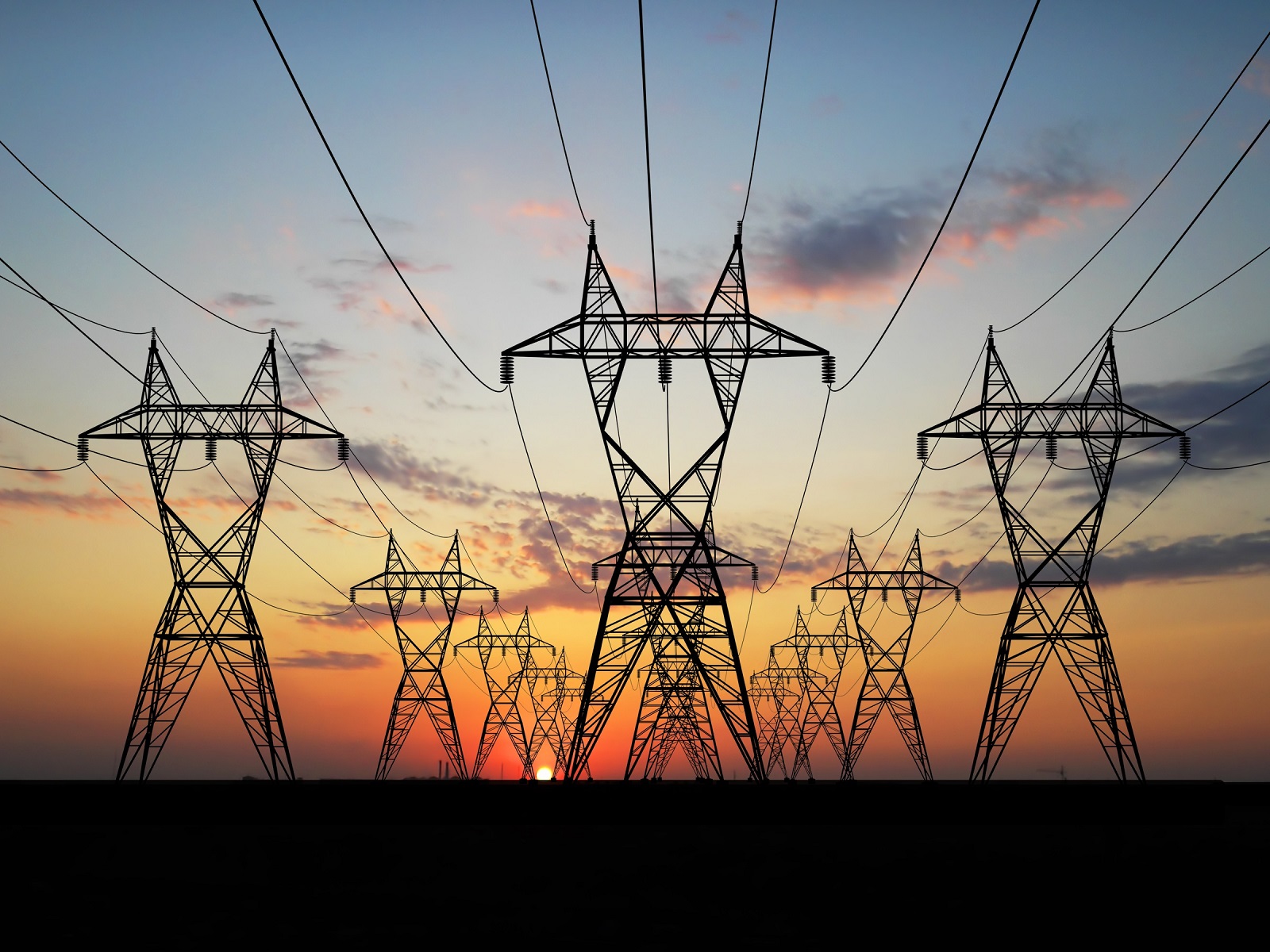
Taqa explores Romanian low-carbon electricity transmission project: The Abu Dhabi National Energy Company (Taqa) has signed an MoU with the Romanian Power Grid Company Transelectrica, Meridiam, E-INFRA, and Fluor to carry out a feasibility study for a HVDC infrastructure project in Romania, Wam reported on Friday. The proposed transmission project will boast an 850 km underground HVDC infrastructure with the ability to transfer 5 GW of power to Romania and the EU.
Not the region's first HVDC venture: Taqa invested GBP 25 mn in UK-based renewables developer Xlinks in April for a 3.8k km HVDC subsea interconnector to transport 3.6 GW of renewable energy from Morocco to the UK. Saudi Arabia’s Arabian Electrical Transmission Line Contracting (AETCON) also won a USD 155 mn contract to construct a high-voltage direct current (HVDC) transmission line connecting Saudi Arabia’s net zero city Neom to other areas in the country. Taqa and Adnoc also reached a financial close on a USD 3.8 HVDC subsea transmission network last year.
SOLAR
Masdar inaugurates 145 MW floating solar plant in Indonesia
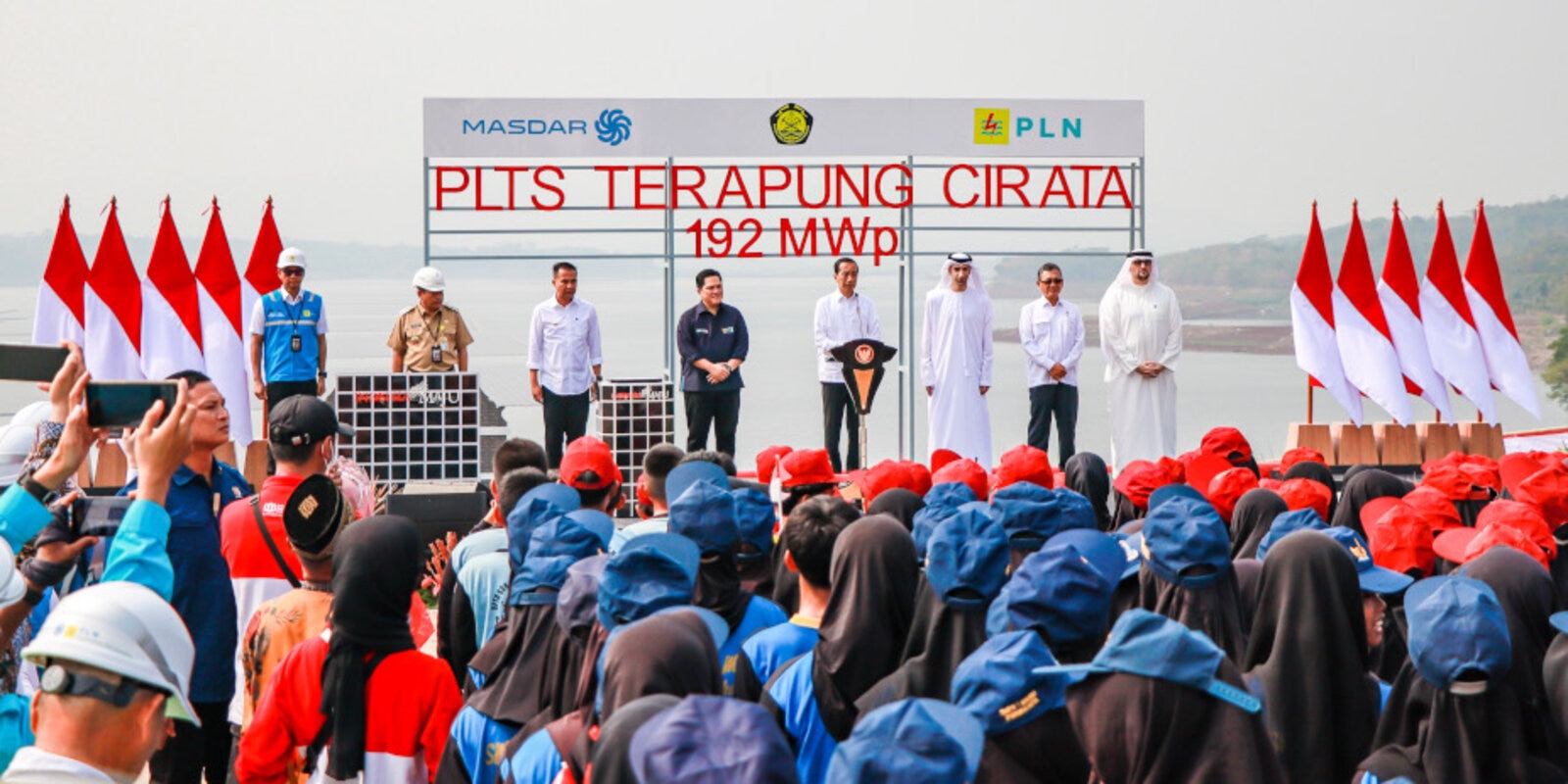
Masdar inaugurates long awaited floating solar plant in Indonesia: UAE renewables giant Masdar has begun operating its 145 MW Cirata floating solar plant in Indonesia and will begin selling its generated energy to Indonesia’s utility company PLN Nusantara Power, according to a statement released on Thursday. The plant — the largest of its kind in Southeast Asia and the third largest globally — will power 50k homes and displace 214k tons of CO2 emissions, according to the statement.
The details: The plant was developed by both Masdar and PLN at an investment cost of IDR 1.7 tn (USD 108.7 mn), Reuters reported on Thursday. Masdar first signed the power purchase agreement with PLN back in 2020, marking the company’s first entrance into the FPV market. The plant occupies 4% of the surface of the Cirata reservoir, which is 108 kms southeast of Indonesia’s capital Jakarta.
There’s more to come: Masdar signed an agreement with PLN in September to expand the Cirata plant with an additional 500 MW capacity of floating solar. The new agreement came after Indonesia issued regulations allocating up to 20% of water coverage for renewable energy operations, the company noted at the time. Masdar did not reveal the expected investment ticket for the upcoming phase yet, but the first stage is estimated to have a USD 145 mn price tag.
Why floating solar is a good move: Installing offshore solar panels would resolve the many challenges faced in regions worldwide in terms of available land and adequate space that doesn’t require deforestation. Adding solar systems on existing reservoirs could allow more than 6k cities around the world to develop self-sufficient power systems, a paper published in Nature journal earlier this year found. The water’s cooling effect on the floating panels can also make them more efficient, while reducing evaporation — and thus loss of fresh water supply — from the shade created by the panels, Masdar said.
But it’s pricier and tougher to maintain: Challenges that offshore solar developers are yet to overcome include higher costs of development — which are around 40% more expensive than panels installed on land — and corrosion from salts or strong winds.
Masdar is interested in other Indonesian ventures: Earlier in February, Masdar acquired shares in the geothermal unit of Indonesian government-owned geothermal utility Pertamina, which controls 82% of Indonesia's installed geothermal energy capacity and manages 13 geothermal energy projects generating 1.87 GW of electricity.
DEBT WATCH
ADIB raises USD 500 mn in blockbuster green sukuk debut
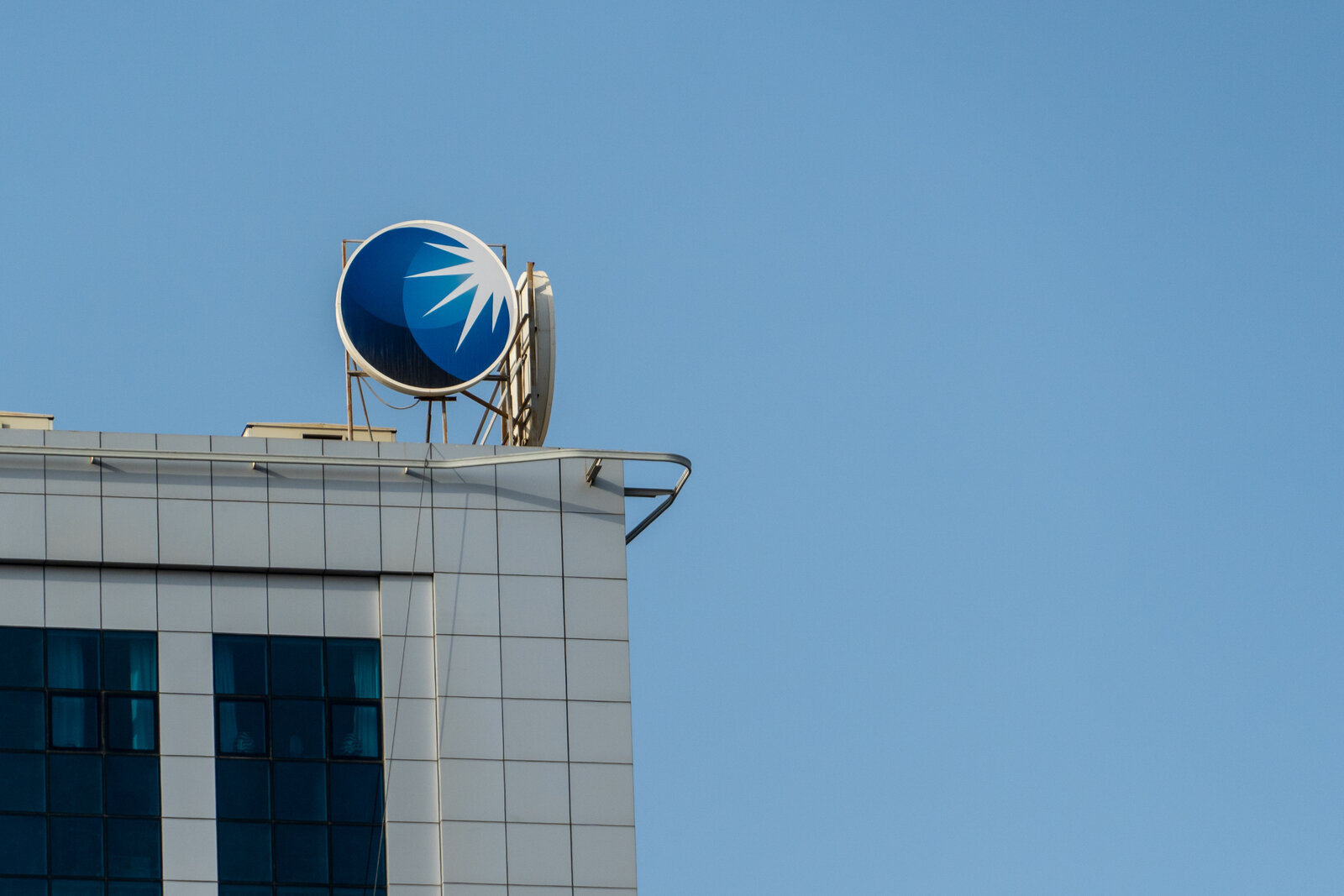
ADIB's green sukuk debut takes off: Abu Dhabi Islamic Bank's (ADIB) USD-denominated green sukuk debut successfully raised USD 500 mn, according to a statement released last week. The green sukuk issuance was 5.2x oversubscribed, closing at USD 2.6 bn. The oversubscription allowed the lender to tighten the final price to 115 bps over the five-year US Treasury Rate from the initial announced price of 145 bps.
Strong demand: A majority of the interest emerged from MENA, accounting for 78% of the allocations, the statement noted. 13% of the allocations came from Europe and 9% from Asia and USA. Private banks accounted for 26% of the investors, followed by commercial banks (42%) and asset and fund managers (17%).
Where is the money going? ADIB intends to allocate the issuance's net proceeds to fund green projects to accelerate the green transition, the statement noted.
What they said: "We are thrilled to be the first financial institution in the world to issue the first USD-denominated green sukuk, which builds on ADIB's efforts to address climate change and to advance sustainable solutions that protect the environment and help facilitate a transition to a low-carbon economy," said ADIB Group's CEO Nasser Al Awadhi.
Advisors: The Islamic lender tapped Standard Chartered Bank as sole global coordinator, along with Emirates NBD Capital, First Abu Dhabi Bank, and Sharjah Islamic Bank as joint bookrunners and joint lead managers, according to the document. ADIB itself will also jump in as a joint bookrunner and manager.
CLIMATE POLICY
UAE launches its Strategy for Climate Neutrality 2050 ahead of COP28
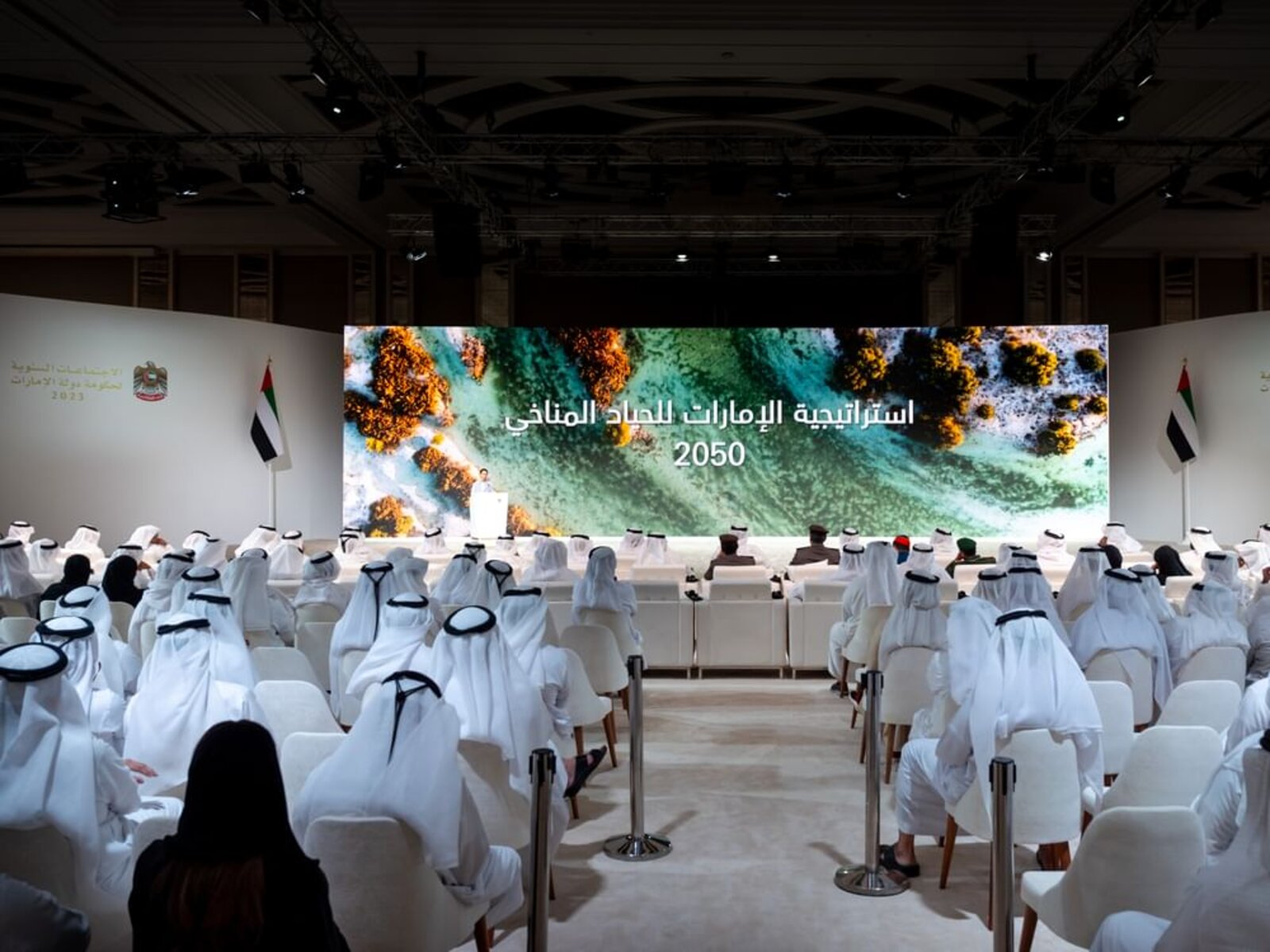
UAE launches its Strategy for Climate Neutrality 2050: The UAE has launched its Strategy for Climate Neutrality 2050 targeting carbon neutrality in six sectors including energy and waste, Wam reported last week. The strategy represents a roadmap to achieving the goals of the UAE Net Zero 2050 initiative launched two years ago. The UAE launched the initiative’s pathway with a timeframe and mechanisms for implementation at COP27 last year.
So what does the new strategy entail? The national strategy aims to achieve carbon neutrality in six sectors — energy, industry, transportation, agriculture, waste, and construction — and identifies three necessary mechanisms to achieve this. The three factors that will support the transition to net zero are providing appropriate mechanisms to finance climate efforts, harnessing technology and supporting the research and development strategy, and committing to the methodology of enhancing skills and capabilities, UAE Climate Change and Environment Minister Mariam Almheiri explained.
Economic upsides and benefits: The strategy will create more than 200k jobs, contribute to achieving about 3% growth in GDP, and enhance the growth of national exports, Almheiri added.
EARNINGS WATCH
Dewa reports a 6.9% y-o-y increase in net profits in 3Q 2023

Dewa’s year is looking up: The Dubai Electricity and Water Authority (Dewa) reported a 6.9% y-o-y increase in net income in the third quarter of the year to AED 3.4 bn, according to a financial statement (pdf) released on Friday. Dewa’s revenues were up 10.2% y-o-y in 3Q reaching AED 9.4 bn, according to a statement.
An even more impressive quarterly performance: Dewa reported a 71.5% q-o-q increase in net income and a 29.2% q-o-q increase in revenues compared to last quarter.
What’s driving Dewa’s rising revenues? The 3Q revenue increase was driven by increased demand for electricity, water, and cooling services as well as a boost in revenues from Dewa’s other portfolio of assets, the statement notes. Total power generation grew by around 8.8% compared to last year mainly driven by a 29.9% increase in green energy, the statement explained.
Dewa’s best quarter yet: “We have achieved the highest quarterly revenue, operating profit, Ebitda, and net profit in Dewa’s history with an outstanding 9.9% growth in [the latter],” CEO and Managing Director of Dewa Saeed Al Tayer said in the statement.
Looking ahead: Dewa aims to have 5 GW of renewable capacity installed by 2030, representing 25% of Dubai’s energy mix, the statement said.
ALSO ON OUR RADAR
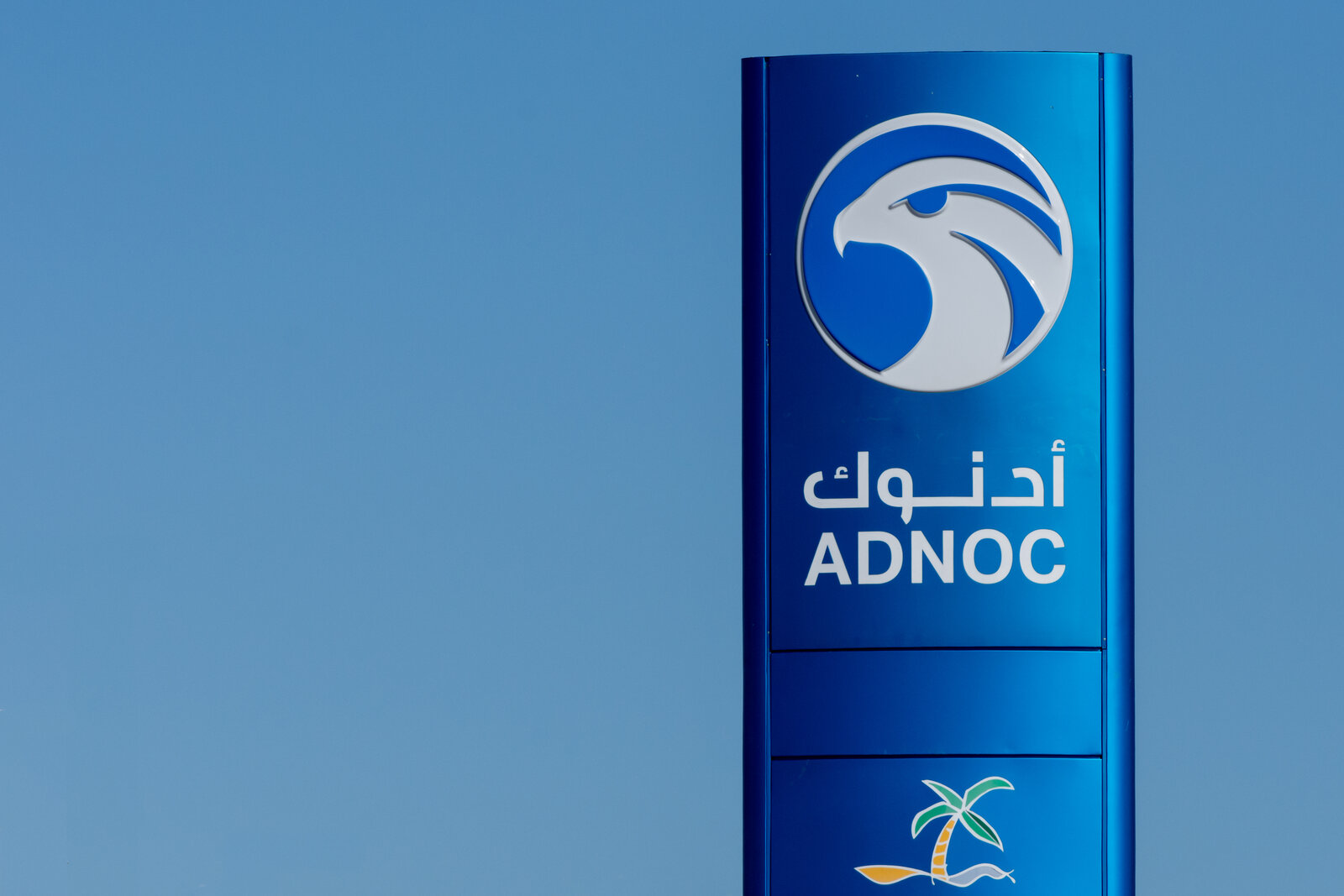
ELECTRIC VEHICLES-
KSA’s PIF and SEC rebrand their EV infrastructure firm: Saudi Arabia’s sovereign wealth fund the Public Investment Fund (PIF) and the Saudi Electricity Company (SEC) have rebranded their JV Electric Vehicle Infrastructure Company to EVIQ, SPA reported yesterday. EVIQ — which is 75% owned by PIF and 25% owned by SEC — aims to set up over 5k fast chargers in over 1k locations in cities across KSA. It will also explore collaboration with EV companies by providing required charging stations, and promote private sector participation in the development of its network of charging stations and support the localization of R&D and manufacturing.
Adnoc Distribution will ramp up the rollout of EV charging points next year and plans to operate 50 of them — 12 more than it currently operates — by year end, Adnoc Distribution's CEO Bader Al Lamki told The National on Friday. The company will focus on installing charging points on highways to meet higher demand and plans to supply biofuel to its business-to-business (B2B) customers.
DIG DEEPER- Adnoc Distribution partnered with Abu Dhabi National Energy Company (Taqa) in January to establish the E2GO joint venture to build and operate electric vehicle (EV) infrastructure in the UAE. The UAE's largest fuel retailer also announced last month that it will use biofuel to power its heavy vehicle fleet.
UAE’s Eanan trials first locally made eVTOL: Emirati green tech company Eanan began a flight testing campaign for the first Emirati-manufactured autonomous electric vertical take-off and landing (eVTOL) aircraft, according to a statement released last week. The self-driving, zero-carbon multicopter will carry both cargo and passengers and is manufactured in Dubai’s Mohammed Bin Rashid Aerospace Hub, the statement notes. The company will debut its S-120 and S-700 eVTOLs at the Dubai Airshow, which kicks off today. The S-120 has a one-hour/30 km flight range with a flying speed of 60 km per hour and can carry a 50 kg payload capacity. The S-700 heavy cargo eVTOL has a 700 kg maximum take-off weight with a 200 kg payload capacity.
DESALINATION-
Morocco’s OCP secures green loan to boost desalination efforts: Moroccan state-owned fertilizer and phosphate company OCP Group has secured a USD 18.3 mn green concessional loan from the Canada-African Development Bank Climate Fund (CACF) to expand its desalination efforts in Africa, according to a statement released last week. This is the first doll out of a USD 36.3 mn loan, with the first USD 18 mn portion aimed at supporting rehabilitation and expansion efforts at Port Autonome de Cotonou in Benin, the statement notes. The second USD 18 mn loan will be earmarked for the development of three desalination plants in Morocco. The green facilities reflect a joint effort between Canada and the African Development Bank to finance “eligible climate change projects in Africa,” the statement notes.
OCP has been busy on the desalination front: The company inaugurated the first phase of its 35 mn cubic meters (cbm) per year Safi desalination plant in Morocco last August. The plant’s output will serve OCP’s industrial needs and provide drinking water to the Safi and El Jadida neighborhoods, with the first phase set to produce 10 cbm annually.
OTHER STORIES WORTH KNOWING ABOUT THIS MORNING-
- Beeah, SIRC, Almqr team up on waste management: The UAE's Beeah, Saudi Investment Recycling Company (SIRC), and Al-Maqar Development Company (Almqr) have signed an agreement to establish a company to develop and provide integrated waste management solutions in Madinah, KSA. (Wam)
- IFFCO earmarks mns towards sustainability-linked: UAE-based FMCG firm IFFCO has earmarked AED 77 mn toward its corporate ESG strategy with 156 projects in the pipeline. The company — which established the plant-based meat alternative brand Thryve back in January — has set a target of slashing 17% of its Scope 1 and 2 emissions from 2021 levels by 2025, and plans to lay out its corporate climate action strategy for 2030 at COP28. (Statement)
- ImpactGulf launches 71 Climate Heroes initiative: UAE carbon accounting and climate consultancy ImpactGulf has launched its 71 Climate Heroes initiative, which aims to help Emirati-based SMEs measure their emission reduction. (Statement)
AROUND THE WORLD
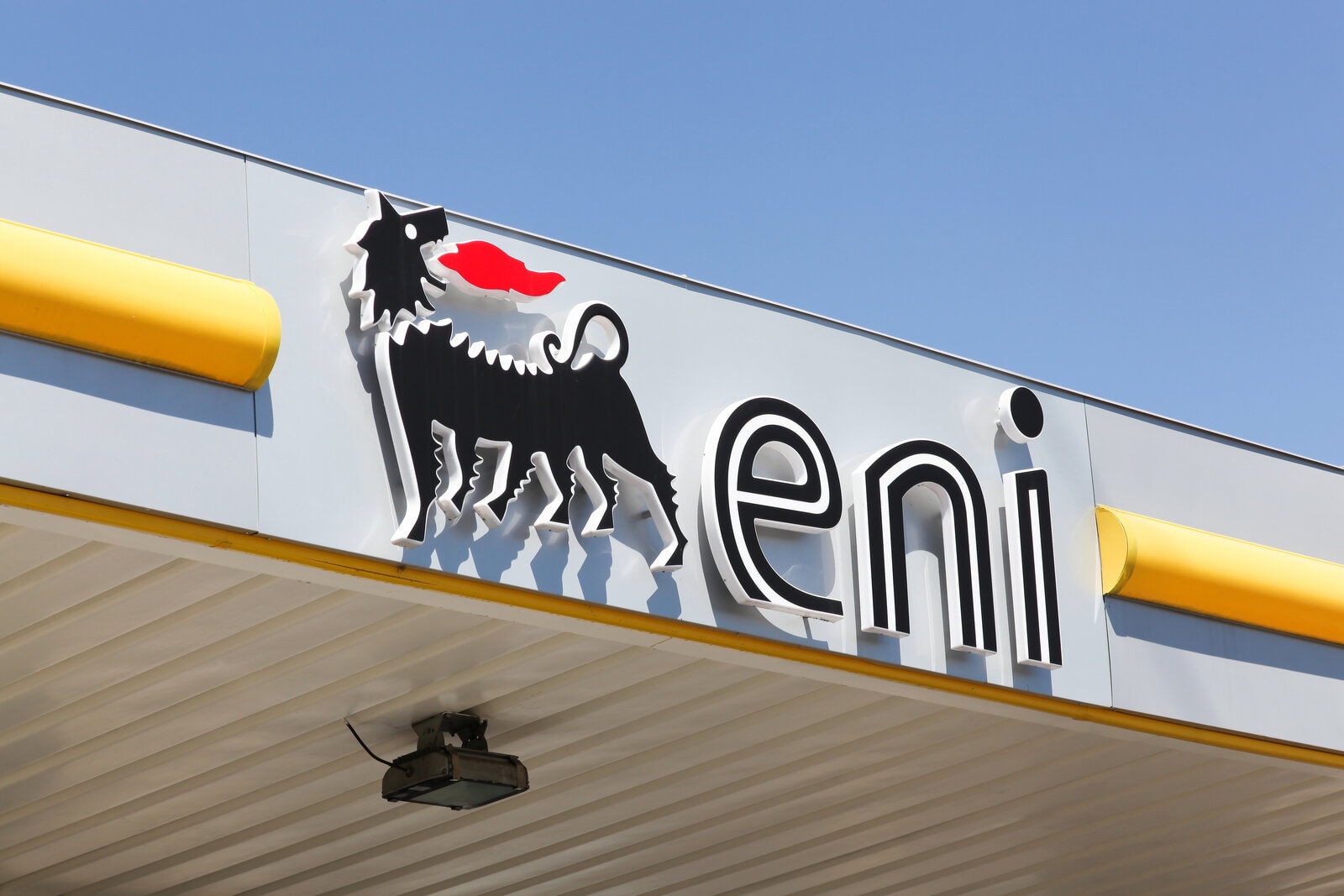
Italy’s Eni is set to sell a stake in its renewables unit Plenitude: Italian state-controlled oil giant Eni is reportedly set to sell a 10% stake in its renewable energy and gas production arm Eni Plenitude to Zurich-based fund Energy Infrastructure Partners AG for USD 800 mn, Bloomberg reported last week, citing sources with knowledge of the matter. The transaction — which values the company at some EUR 8 bn — is reportedly in its final stages of negotiations and is set to be finalized by the end of the month. The stake sale will give the Italian company a cash injection it can use for investments, and would allow Eni to lock in a value for Plenitude and lay the groundwork for IPO plans as soon as 2024, Bloomberg notes.
GM + Stellantis invest in metalsfree EV magnet startup: US and Dutch giant automakers General Motors and Stellanis are joining US-based rare metalsfree EV magnet startup Niron Magnetics’ latest USD 33 mn funding round, Reuters reported last week. Niron Magnetics will use the funds to develop its patented Clean Earth Magnet — a permanent magnet manufactured without the use of critical metals such as neodymium and praseodymium. The move comes as EV makers around the world seek to reduce their reliance on critical metal and mineral imports from China, which supplies around 90% of the world’s rare-earth magnet supply, Niron CEO Jonathan Rowntree told the newswire.
Why permanent magnets? Electric motors that use rare metal magnets in their production are by far the most commonly used motors in the EV market given their high power density, torque density, and efficiency, according to EV reporter, adding that in 2021 permanent magnet motors made up 84% of the electric car market. Motors without permanent magnets are cheaper but less efficient and require a larger battery, reducing the driving range, Reuters writes.
OTHER STORIES WORTH KNOWING ABOUT THIS MORNING-
- The first commercial DAC plant in the US comes online: Heirloom Carbon Technologies has launched the first commercial plant in the US to use direct air capture (DAC) with an initial 1k ton annual sequestration capacity. (New York Times)
- World’s first commercial carbon-sensing satellite launched: Canadian greenhouse gas monitoring firm GHGSat launched on Saturday a satellite from the Vandenberg Space Force Base in California to track carbon emissions from polluting industries. Data gathered by the sensor will be available for sale to industrial emitters, governments, and researchers. (Statement)
- South Africa is set to miss its 2030 climate action target: South Africa — the world’s seventh largest coal consumer — is on course to miss its binding emissions reduction target for 2030 as its government axes plans to decommission six coal-fired power plants by the end of the decade. (Reuters)
- Shell sues Greenpeace: Dutch oil giant Shell is suing climate Greenpeace for USD 2.1 mn after protesters occupied the vessel in the Atlantic Ocean for 13 days earlier. Greenpeace rejected an offer by Shell to reduce its claim to USD 1.4 mn if the group agreed to no longer protest at Shell’s assets. (Financial Times)
- Namibia breaks ground on first green steel plant: HyIron has begun construction on Africa’s first green hydrogen-powered iron smelting plant as part of the Oshivela project in western Namibia. The plant will have a production capacity of some 15k tons of iron annually. (Reuters)
- Ins. companies are still on the fossil fuel bandwagon: Ins. industry giants — including Berkshire Hathaway and Everest Re — are still investing in fossil fuel production companies and do not have an exit strategy. Germany’s Allianz ranked as the global leader in fossil fuel underwriting policies over the past two years, while Generali, Aviva, Swiss Re, AXA, Hannover Re and AXIS Capital followed in ranking. Scor retained first place by a “wide margin” for its fossil fuel divestment policy. (Report, pdf)
CLIMATE IN THE NEWS
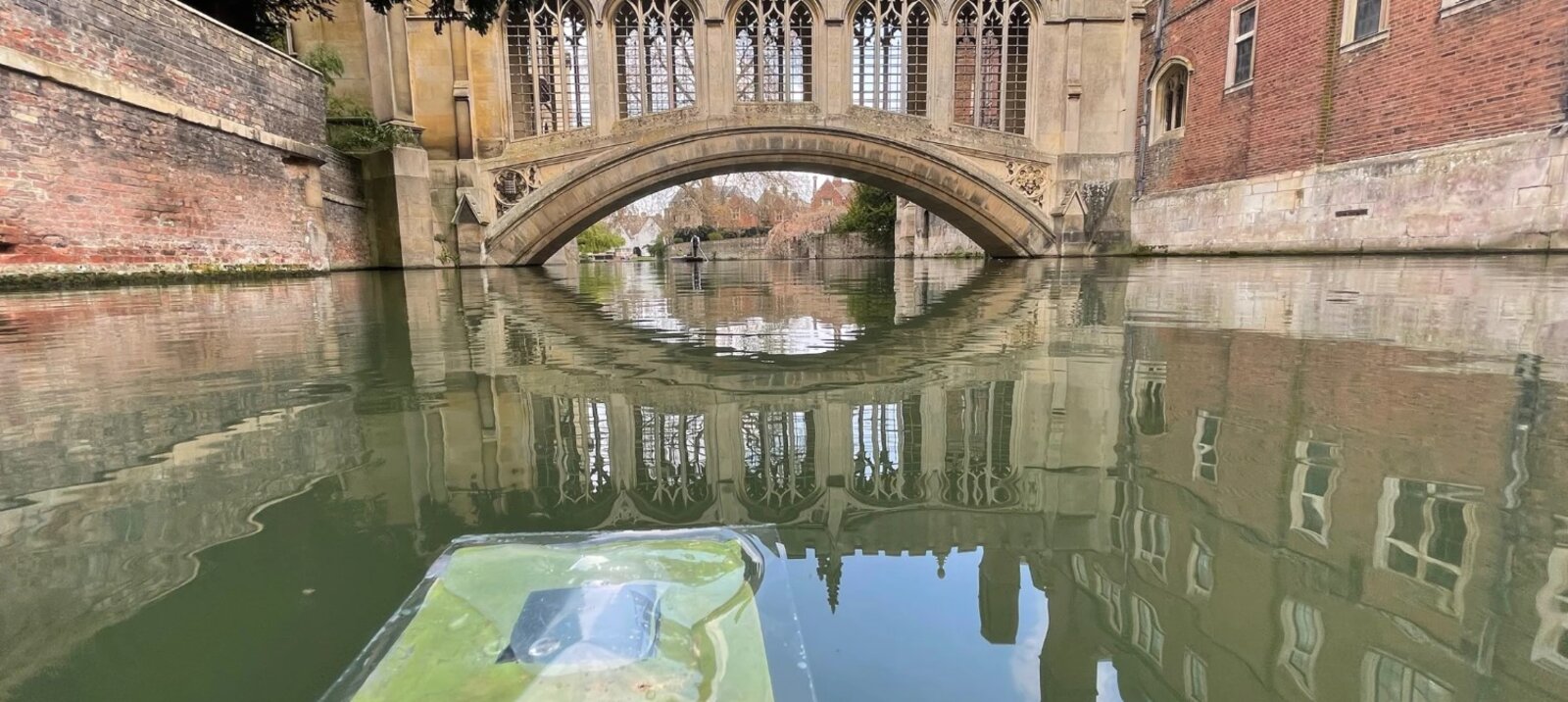
A floating artificial leaf-like device that can mimic photosynthesis to produce sustainable petrol or diesel could offer a new source of emission-free fuels, the Guardian reports. The thin, flexible devices — developed by Cambridge researchers — turns sunlight, water and CO2 into synthetic fuel with the potential to be commercialized at an industrial scale, professor of energy and sustainability at Cambridge University Erwin Reisner told the news outlet.
How does it work? The device has chemical light absorbers and catalysts that turn carbon dioxide and water into a mixture of carbon monoxide and hydrogen. The researchers used “thin-film metal oxides and materials called perovskites to create devices that were covered with micrometer-thin, water-repellent layers,” Reisner explained, adding that the result was a “highly effective but non-bulky device that is a millimeter thick and covers an area of 100 sq cm, a bit like a leaf.”
Filling the clean fuel gap: The device could be scaled commercially to make green sustainable kerosene for the aviation market or diesel for the shipping sector. Additionally, the combination of hydrogen and carbon monoxide it produces is also used as feedstock in the production of many chemicals and fuels, Reisner added.
And saving land: A crucial advantage of this tech is the fact that it floats and so does not occupy the large amounts of land needed for crops and woodlands. “Clean energy and land use would not be competing with each other,” Reisner said.
CALENDAR
NOVEMBER 2023
9-15 November (Thursday-Wednesday): Intra-African Trade Fair 2023, Cairo, Egypt.
11-13 November (Saturday-Monday): GCC-Türkiye Economic Forum, Istanbul, Turkey.
15-17 November (Wednesday-Friday): WETEX and Dubai Solar Show, Dubai, UAE.
15-18 November (Wednesday-Saturday): DEWA’s First MENA Solar Conference, Dubai, UAE.
20-24 November (Monday-Friday) Aviation and Alternative Fuels conference, Dubai, UAE.
27-30 November (Monday-Thursday) Abu Dhabi Finance Week (ADFW), Abu Dhabi, UAE.
28-29 November (Tuesday-Wednesday): World Green Economy Summit (WGES), Dubai, UAE.
30 November – 12 December (Thursday-Tuesday): Conference of the Parties (COP 28), Dubai, UAE.
DECEMBER 2023
1-10 December (Friday-Saturday): Abu Dhabi Sustainability Week COP28 Special Edition, Dubai, UAE.
4 December (Monday): Saudi Green Initiative Forum, Dubai, UAE.
4 December (Monday): Abu Dhabi Sustainability Week (ADSW) summit, Dubai, UAE.
4-7 December (Monday-Thursday): International Conference on Global Warming, Ras Al Khaimah, UAE.
6-7 December (Wednesday-Thursday): Reuters’ Energy Transition MENA conference, Dubai, UAE.
7-8 December (Thursday-Friday): Future Investment Initiative (FII) Priority, Hong Kong.
8 December (Friday): Youth for Sustainability Forum (Y4S), Dubai, UAE.
12-14 December (Tuesday-Thursday): Green Hydrogen Summit Oman, Oman Convention and Exhibition Center, Muscat, Oman.
18-20 December (Monday-Wednesday): Saudi Arabia Smart Grid Conference, Hilton Riyadh Hotel & Residences, Riyadh, Saudi Arabia.
JANUARY 2024
9-11 January (Tuesday-Thursday): Future Minerals Forum, Riyadh, Saudi Arabia.
FEBRUARY 2024
26-28 February (Monday-Wednesday): Management and Sustainability of Water Resources, Dubai, UAE.
MARCH 2024
4-6 March (Monday-Wednesday): International Conference on Sand and Dust Storms in the Arabian Peninsula, Riyadh, Saudi Arabia.
APRIL 2024
16-18 April (Tuesday-Thursday): World Future Energy Summit, Abu Dhabi, UAE.
23-25 April (Tuesday-Thursday): Connecting Green Hydrogen MENA, Dubai, UAE.
MAY 2024
19-21 May (Sunday-Tuesday): Saudi Energy Convention, Riyadh, KSA.
JUNE 2024
5 June (Wednesday): World Environment Day, Saudi Arabia.
OCTOBER 2024
10-12 October (Tuesday-Thursday): Autonomous E-Mobility Forum, Doha, Qatar.
DECEMBER 2024
2-13 December (Monday-Friday): Conference of the Parties (COP16) to the United Nation Convention to Combat Desertification, Riyadh, KSA.
EVENTS WITH NO SET DATE
2024
Early 2024: The 2023 US Algeria Energy Forum, Washington DC, USA.
12-14 February (Monday-Wednesday): Sustainable Aviation Futures MENA Congress, Dubai, UAE.
End-2024: Emirati Masdar’s 500 MW wind farm in Uzbekistan to begin commercial operations.
QatarEnergy’s industrial cities solar power project will start electricity production.
2025
International Union for Conservation of Nature World Conservation Congress, Abu Dhabi, UAE.
UAE to have over 1k EV charging stations installed.
2026
UITP Global Public Transport Summit, Dubai, UAE.
Annual Meetings of the World Bank and the International Monetary Fund, Bangkok, Thailand.
1Q 2026: QatarEnergy’s USD 1 bn blue ammonia plant to be completed.
End-2026: HSBC Bahrain to eliminate single-use PVC plastic cards.
2027
MENA’s district cooling market is expected to reach USD 15 bn.
2030
UAE’s Abu Dhabi Commercial Bank (ADCB) wants to provide AED 35 bn in green financing.
UAE targets 14 GW in clean energy capacity.
Tunisia targets 30% of renewables in its energy mix.
Qatar wants to generate USD 17 bn from its circular economy, creating 9k-19k jobs.
Morocco’s Xlinks solar and wind energy project to generate 10.5 GW of energy.
2035
Qatar to capture up to 11 mn tons of CO2 annually.
2045
Qatar’s Public Works Authority’s (Ashghal) USD 1.5 bn sewage treatment facility to reach 600k cm/d capacity.
2050
Tunisia’s carbon neutrality target.
2060
Nigeria aims to achieve its net-zero emissions target.
Enterprise Climate is available without charge thanks to the generous support of HSBC (tax ID: 204-901-715), the leading corporate and retail lender in Egypt; and Infinity Power (tax ID: 305-170-682), the leading generator and distributor of renewable energy in Africa and the Middle East. Enterprise Climate is delivered Mon-Thurs before 4 am UAE time. Were you forwarded this copy? Sign up for your own delivery at climate.enterprise.press. Contact us on climate@enterprisemea.com.


